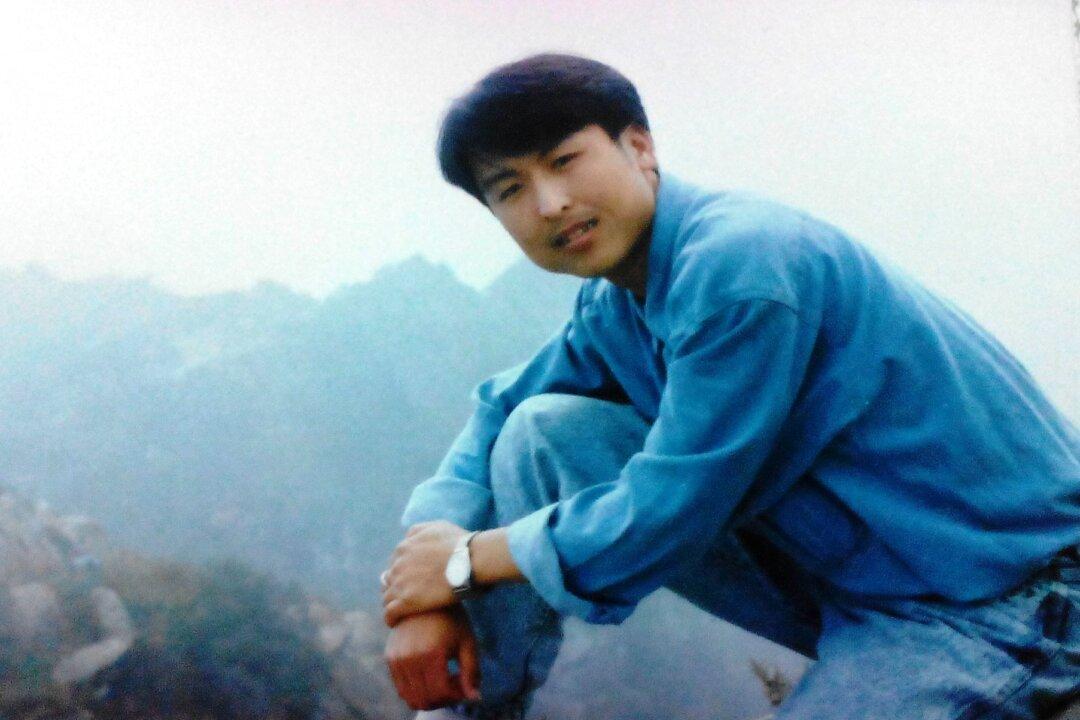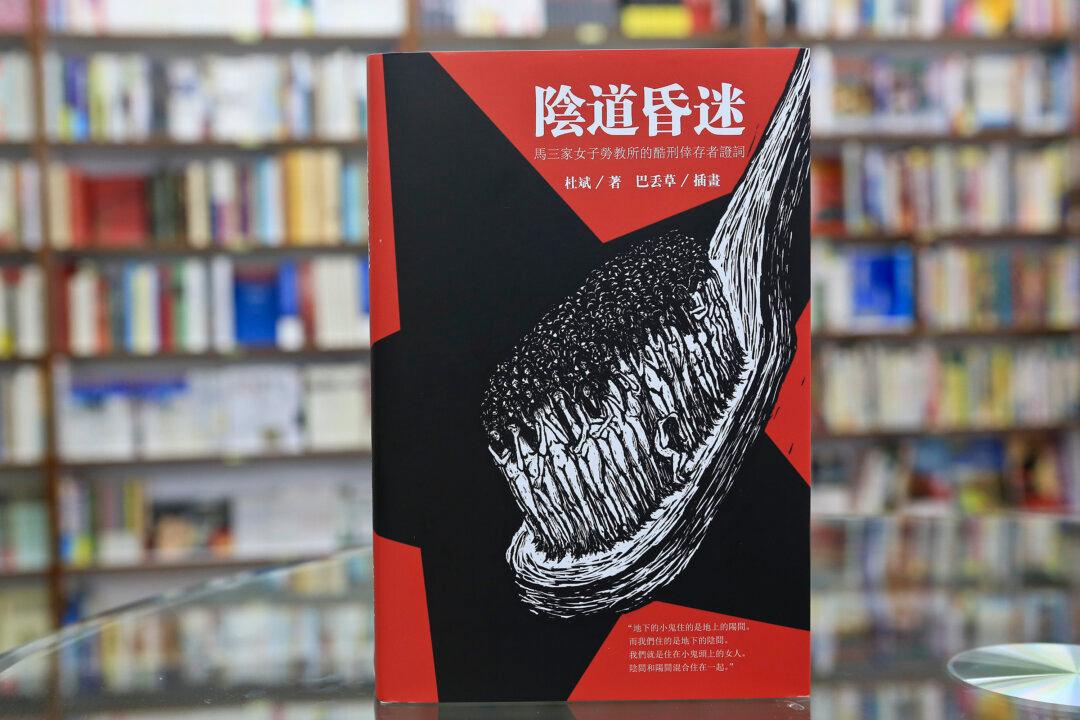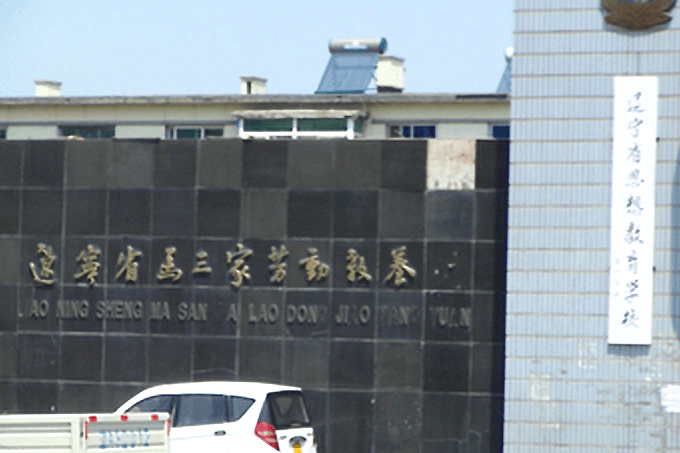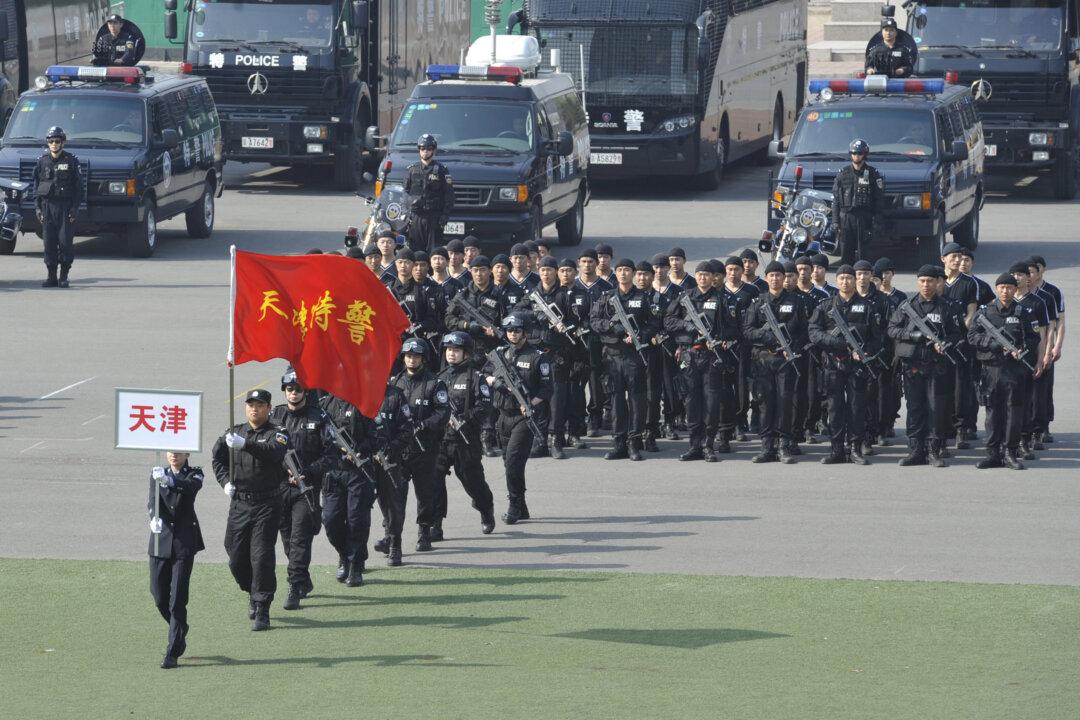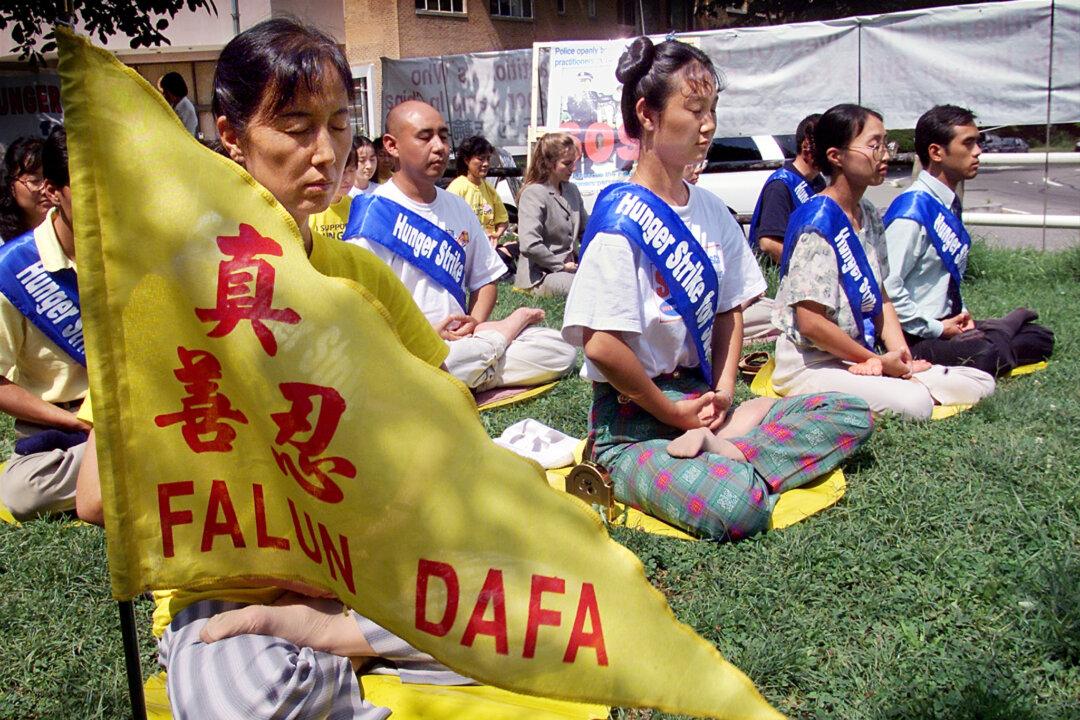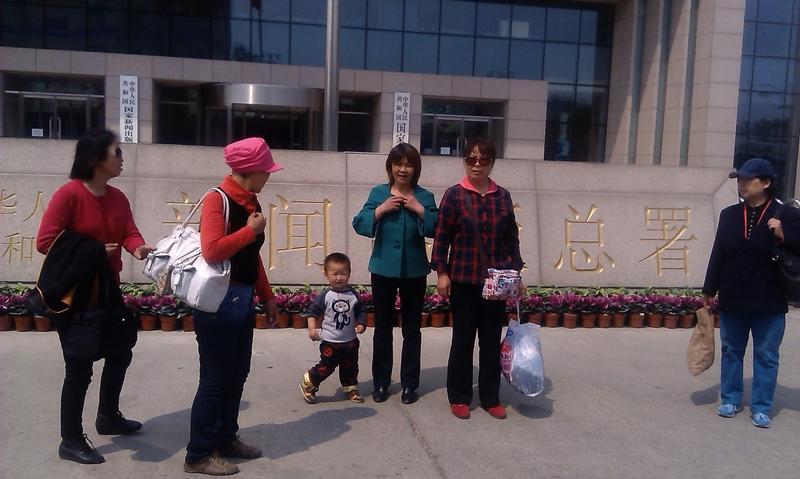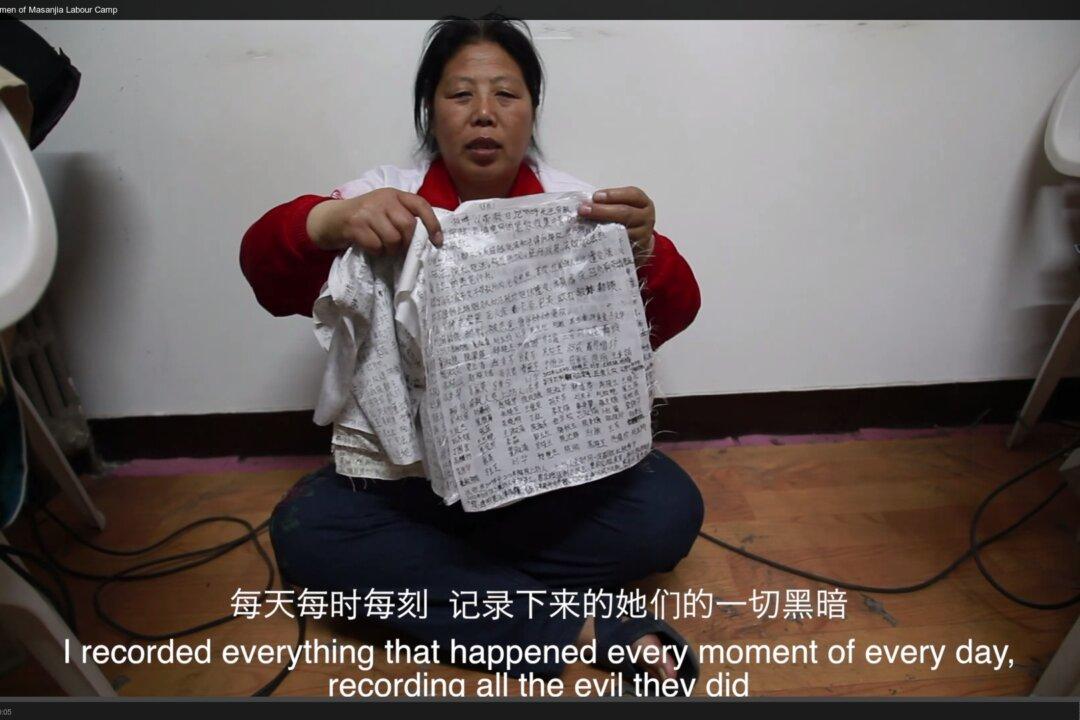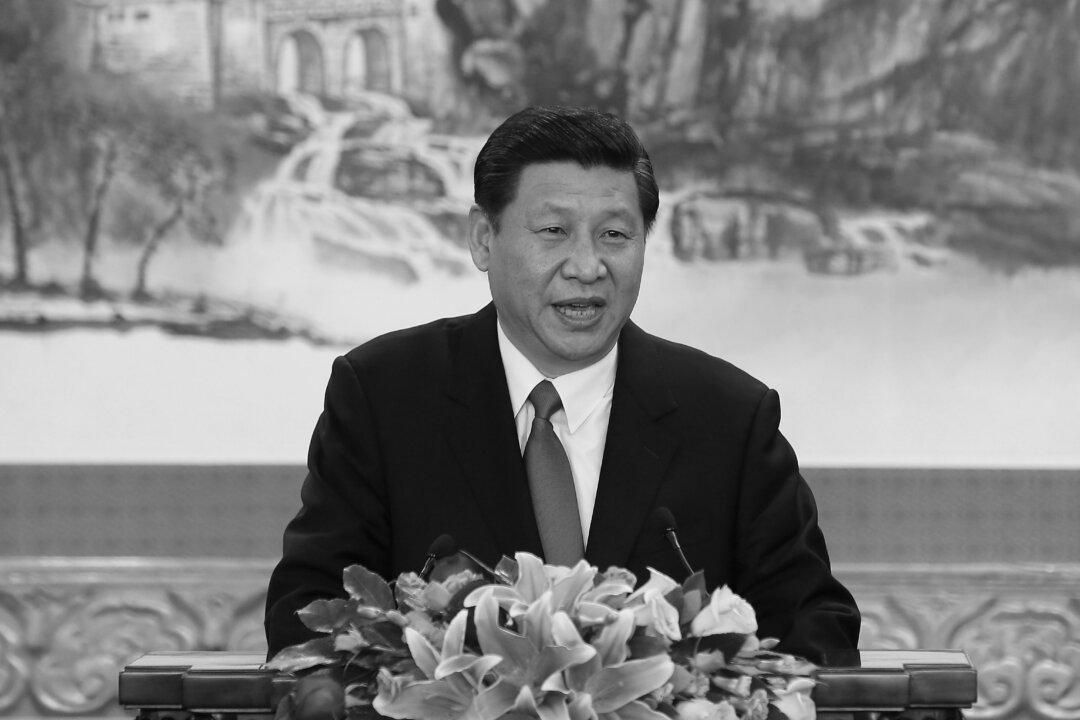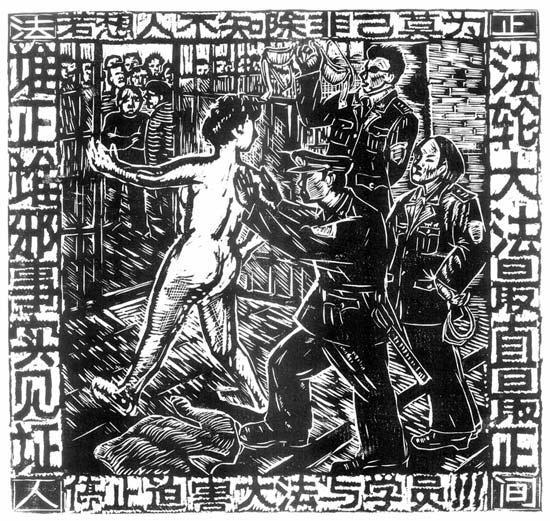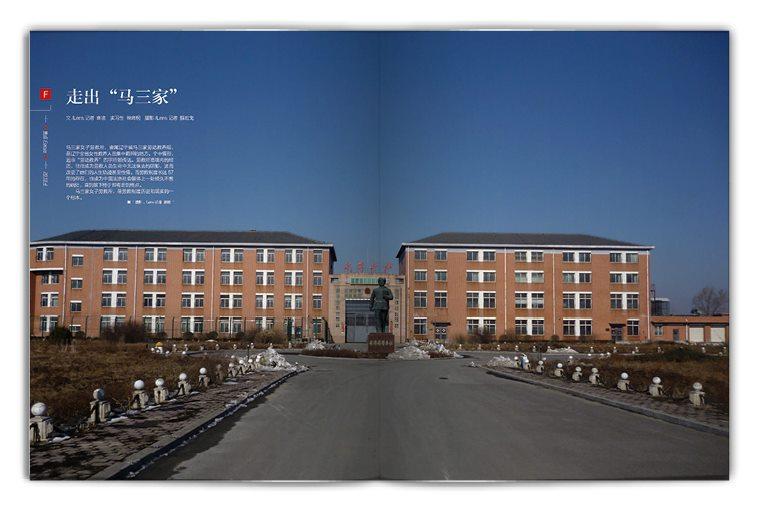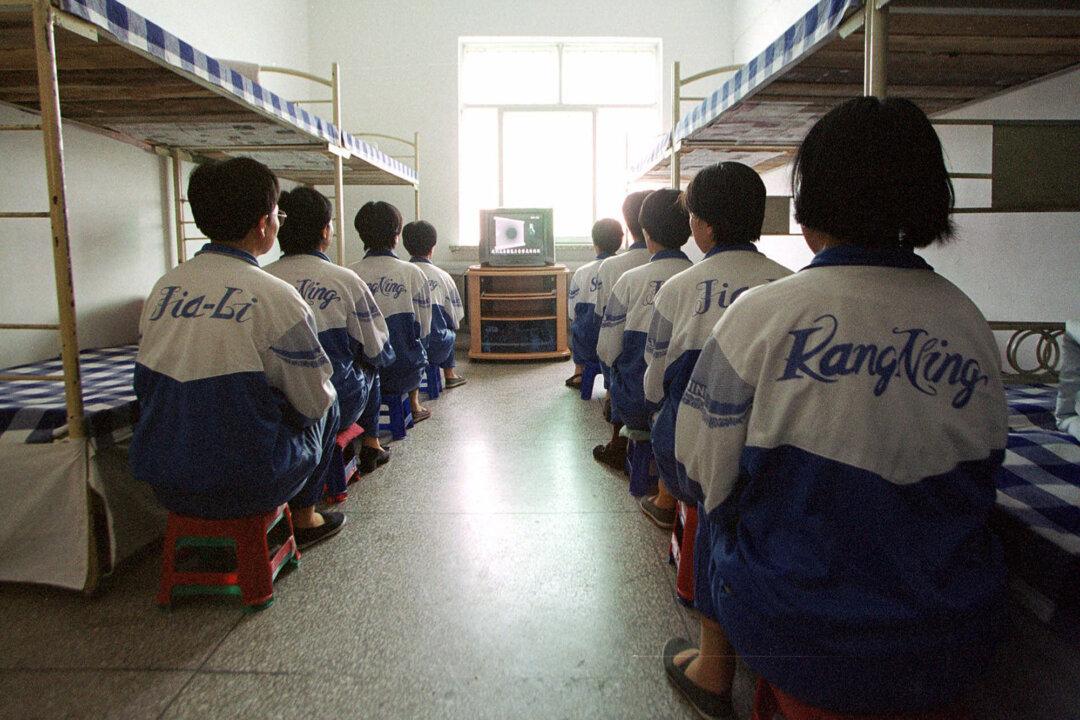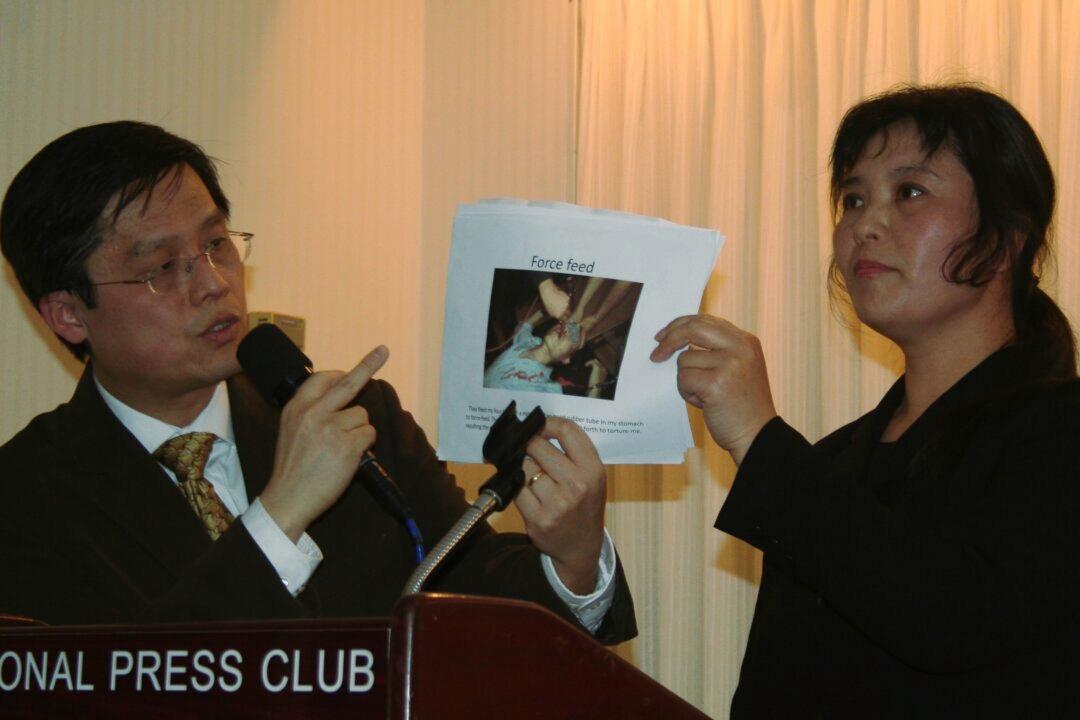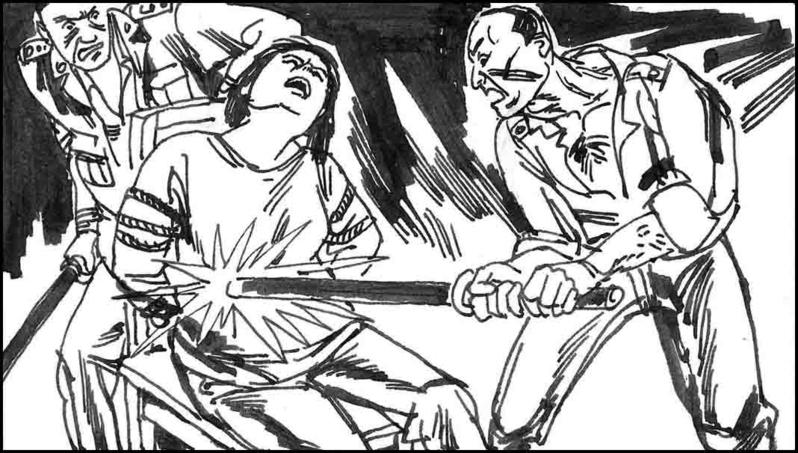Masanjia Torture Camp
Delve into a gripping investigation by The Epoch Times as we uncover the harrowing reality inside the Masanjia Torture Camp. Explore the stories of survivors and the quest for justice against human rights abuses
Masanjia Torture Camp | LATEST STORIES
Manhattan Resident Seeks to Rescue Fiancé Tortured in China
After serving nine and one-half years in a Chinese prison for remaining true to his beliefs, a former railway manager now may face even more time in one of China’s nightmarish extra-legal detention centers.
|
New Book Exposes Sexual Torture in Masanjia Labor Camp
“Vaginal Coma,” book by photojournalist Du Bin, was published, revealing the brutal sex torture to female inmates in Masanjia Women’s Labor Camp
|
Torture Camp Rebranded in China
The Masanjia Women’s Labor Camp was supposed to be closed down, but now it simply has two names.
|
China Camp Closures Prompt Calls for Compensation
Victims of the system of forced labor camps in China are now demanding compensation for the abuses they suffered when the system was up and running.
|
Labor Camps Abolished but Abuse Continues
According to a decision approved by the Chinese Communist Party’s Central Committee and published on Nov. 15, the notorious system of labor camps in China has been abolished. Many of the inmates will not notice any difference.
|
The Darkness of China’s Legal System Exposed
Two reports that came out in early April this year have once again exposed the darkness of China’s legal system, which heedlessly takes away people’s lives and has no limits in how it debases human dignity.
|
Masanjia Challenges Party’s Legitimacy in China
The May 1 screening of two independent documentaries in both Hong Kong and Taiwan has made the hot topic of the re-education through labor [RTL] system in China even hotter. Inside China, the recent attention paid to the RTL system prior to these releases had already put certain elements in the regime into a bind in which they could not admit what they had done but felt compelled to defend it.
|
Masanjia Victims’ Journey of Protest Continues
Masanjia Labor Camp victims protested a government report denying torture in the camp, while the May issue of Lens magazine was delayed after it published a report about abuses in Masanjia.
|
State Media Dodges Torture Victims
A group of female Masanjia torture victims have confronted Xinhua, the official Chinese mouthpiece, over its publication of a torture denial report issued by Liaoning officials.
|
Harrowing Documentary About Slavery and Torture in China Released
A documentary about the extraordinary torture and abuse meted out at the Chinese labor camp Masanjia, in Liaoning Province, has been published.
|
Masanjia Victims Bear Witness
A long and detailed magazine article in mainland China described in detail the horrific tortures used against the inmates of the Masanjia Labor Camp in northeastern China’s Liaoning Province. Here, in their own words, are the accounts of thee victims of Masanjia.
|
Behind Labor Camp Exposé, Political Warfare
The publication of accounts of the gruesome torture methods used against detainees in the Masanjia labor camp—most well known as a torture training ground for Chinese securities forces in the persecution of Falun Gong—indicates that something unusual is taking place at the top of the Chinese leadership, according to political analysts.
|
Sexual Torture Practiced at Masanjia
Sexual abuse has been a constant part of the repertoire of tortures developed at Masanjia to force Falun Gong practitioners to give up their spiritual beliefs.
|
Sister in Washington Appeals for Sister in Torture Den
Ma Chunmei, a resident of the Washington metro area, is trying by every means to rescue from the Masanjia labor camp her sister, Ma Chunling, who has been there since August 2012. She fears the worst.
|
Tabbed for Organ Harvesting at Masanjia
Sometimes practitioners of Falun Gong would disappear from Masanjia Women’s Forced Labor Camp without a trace. Their clothes and other belongings would remain behind, but the practitioners could not be found. One inmate only fully understood what those disappearances meant after she had been released from the labor camp.
|
State Media Denies Use of Torture at Masanjia Labor Camp
Chinese regime media outlets that are controlled by former Communist Party leader Jiang Zemin went into overdrive to deny the allegations published in Lens magazine of torture in Masanjia labor camp. An investigation would bring to light Ziang’s own involvement and sinister legacy related to Masanjia and other forced labor camps in China—more than 300 of them.
|
School For Torture Targets Falun Gong in China
The recent exposé of Masanjia labor camp published in mainland China left out essential information: the identity of victims, or the purpose of the torture and brainwashing they were subject to, or the sinister and crucial role of the camp in carrying out the most sweeping campaign of persecution orchestrated in contemporary Chinese history.
|
Victims Recount Torture at Chinese Labor Camps
Falun Gong practitioners who suffered torture in the Masanjia Labor Camp in China’s Liaoning Province present evidence of the torture they suffered—rebutting official propaganda.
|
‘Women Above Ghost’s Head'
A new documentary reveals the torture experienced by Chinese women detained at Masanjia labor camp.
|
Manhattan Resident Seeks to Rescue Fiancé Tortured in China
After serving nine and one-half years in a Chinese prison for remaining true to his beliefs, a former railway manager now may face even more time in one of China’s nightmarish extra-legal detention centers.
|
New Book Exposes Sexual Torture in Masanjia Labor Camp
“Vaginal Coma,” book by photojournalist Du Bin, was published, revealing the brutal sex torture to female inmates in Masanjia Women’s Labor Camp
|
Torture Camp Rebranded in China
The Masanjia Women’s Labor Camp was supposed to be closed down, but now it simply has two names.
|
China Camp Closures Prompt Calls for Compensation
Victims of the system of forced labor camps in China are now demanding compensation for the abuses they suffered when the system was up and running.
|
Labor Camps Abolished but Abuse Continues
According to a decision approved by the Chinese Communist Party’s Central Committee and published on Nov. 15, the notorious system of labor camps in China has been abolished. Many of the inmates will not notice any difference.
|
The Darkness of China’s Legal System Exposed
Two reports that came out in early April this year have once again exposed the darkness of China’s legal system, which heedlessly takes away people’s lives and has no limits in how it debases human dignity.
|
Masanjia Challenges Party’s Legitimacy in China
The May 1 screening of two independent documentaries in both Hong Kong and Taiwan has made the hot topic of the re-education through labor [RTL] system in China even hotter. Inside China, the recent attention paid to the RTL system prior to these releases had already put certain elements in the regime into a bind in which they could not admit what they had done but felt compelled to defend it.
|
Masanjia Victims’ Journey of Protest Continues
Masanjia Labor Camp victims protested a government report denying torture in the camp, while the May issue of Lens magazine was delayed after it published a report about abuses in Masanjia.
|
State Media Dodges Torture Victims
A group of female Masanjia torture victims have confronted Xinhua, the official Chinese mouthpiece, over its publication of a torture denial report issued by Liaoning officials.
|
Harrowing Documentary About Slavery and Torture in China Released
A documentary about the extraordinary torture and abuse meted out at the Chinese labor camp Masanjia, in Liaoning Province, has been published.
|
Masanjia Victims Bear Witness
A long and detailed magazine article in mainland China described in detail the horrific tortures used against the inmates of the Masanjia Labor Camp in northeastern China’s Liaoning Province. Here, in their own words, are the accounts of thee victims of Masanjia.
|
Behind Labor Camp Exposé, Political Warfare
The publication of accounts of the gruesome torture methods used against detainees in the Masanjia labor camp—most well known as a torture training ground for Chinese securities forces in the persecution of Falun Gong—indicates that something unusual is taking place at the top of the Chinese leadership, according to political analysts.
|
Sexual Torture Practiced at Masanjia
Sexual abuse has been a constant part of the repertoire of tortures developed at Masanjia to force Falun Gong practitioners to give up their spiritual beliefs.
|
Sister in Washington Appeals for Sister in Torture Den
Ma Chunmei, a resident of the Washington metro area, is trying by every means to rescue from the Masanjia labor camp her sister, Ma Chunling, who has been there since August 2012. She fears the worst.
|
Tabbed for Organ Harvesting at Masanjia
Sometimes practitioners of Falun Gong would disappear from Masanjia Women’s Forced Labor Camp without a trace. Their clothes and other belongings would remain behind, but the practitioners could not be found. One inmate only fully understood what those disappearances meant after she had been released from the labor camp.
|
State Media Denies Use of Torture at Masanjia Labor Camp
Chinese regime media outlets that are controlled by former Communist Party leader Jiang Zemin went into overdrive to deny the allegations published in Lens magazine of torture in Masanjia labor camp. An investigation would bring to light Ziang’s own involvement and sinister legacy related to Masanjia and other forced labor camps in China—more than 300 of them.
|
School For Torture Targets Falun Gong in China
The recent exposé of Masanjia labor camp published in mainland China left out essential information: the identity of victims, or the purpose of the torture and brainwashing they were subject to, or the sinister and crucial role of the camp in carrying out the most sweeping campaign of persecution orchestrated in contemporary Chinese history.
|
Victims Recount Torture at Chinese Labor Camps
Falun Gong practitioners who suffered torture in the Masanjia Labor Camp in China’s Liaoning Province present evidence of the torture they suffered—rebutting official propaganda.
|
‘Women Above Ghost’s Head'
A new documentary reveals the torture experienced by Chinese women detained at Masanjia labor camp.
|

